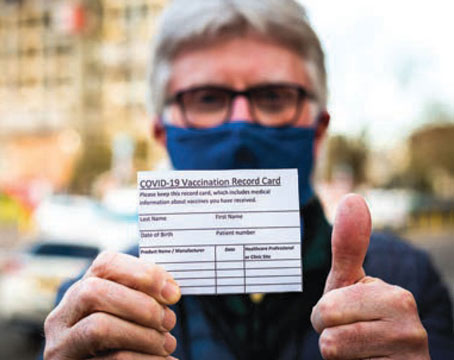 |
The recent attempt on the life of former President Donald Trump has had an outsized effect on many Americans and on the body politic. But why? Thousands of people are shot in the United States every day and it doesn’t even make a splash on the local news. Even shooting deaths have become so common that the thoughts and prayers don’t even have a chance to become inconsequential. So why was this event more noteworthy? Should it be more noteworthy? Obviously, I know the answer, or rather the many answers. He’s a past president. He’s the nominee to run again. He is both famous and infamous. He’s a symbol of the American political system, and of a subset of political thought held by a large number of Americans. So, it’s both right to have this event command the national consciousness, at least for a while, and it’s very wrong. After all Trump did say all lives matter, but with apologies to George Orwell, some lives matter more apparently.
In case you were worried this column would descend into partisan politics, I’ve said what I wanted about the event that caused me to think about why violence in this world seems to continue unabated. High-profile violence, especially. While crime statistics indicate some decrease in violent crime over the last two years in many U.S. cities, it certainly doesn’t feel that way. And I’m not just talking about violent crime here, but the tendency for violence around the world. Are we as a species becoming more or less violent, and why? It would seem to be more violent, but I keep asking myself if that is real or is it simply because social media has put each episode in our face?
There are many reasons for why we’re a violent, aggressive species. It’s inherent in our genes, originating from self-preservation and procreation. Like all animals, we want to live and reproduce. And to do that we have to defend our person, our resources and our mates. This can require violence—or at least it did. The reflexive response of the amygdala and hippocampus can be moderated by our subcortical and cortical inputs. The rational human can decide not to fight, or at least fight less and with less physical violence. So why don’t we? Isn’t that the point of civilization, to achieve a society that provides the resources and structure to not need to kill to survive? That leads to the question as to whether we’ve achieved that and, if we have, why isn’t that sufficient? What are the other reasons we remain aggressive and violent at the drop of a hat? OK, not all of us, but way too many. Is it fun/satisfying to be violent? Are these tendencies enhanced by a modern stressful society? Is drug use central to this? The answer is likely a combination. It seems that despite our evolution, it’s very easy to trigger aggression and violence. Especially in males. That implicates testosterone, as do the statistics of who commits violent crime.
So, with violence and aggression so prevalent in humans, what’s the basis of an increased incidence of high-profile violence such as mass shootings and assassinations? Is this any different than inner-city gang violence, drug trafficking violence or war in the Middle East? I submit that it is. The kind of violence I’m calling out is less about anger in the moment, than it is about a baseline of anger. An anger of vengeance, and grievances long held but unresolved, of people walking around every day with a smoldering level of anger. If it isn’t of the moment, you would think that our higher processes would have a better chance of intervening. And the aggressive response could possibly be mitigated. It’s tough to suppress a reflex. It shouldn’t be as difficult to defuse a grudge. But here we are with another high-profile violent episode to contend with and as of this writing, no idea where it came from. We say that there is no role for violence in American politics, but why don’t we say that about American life? It seems, as a species, we have a long way to go.
Dr. Blecher is an attending surgeon at Wills Eye Hospital.




